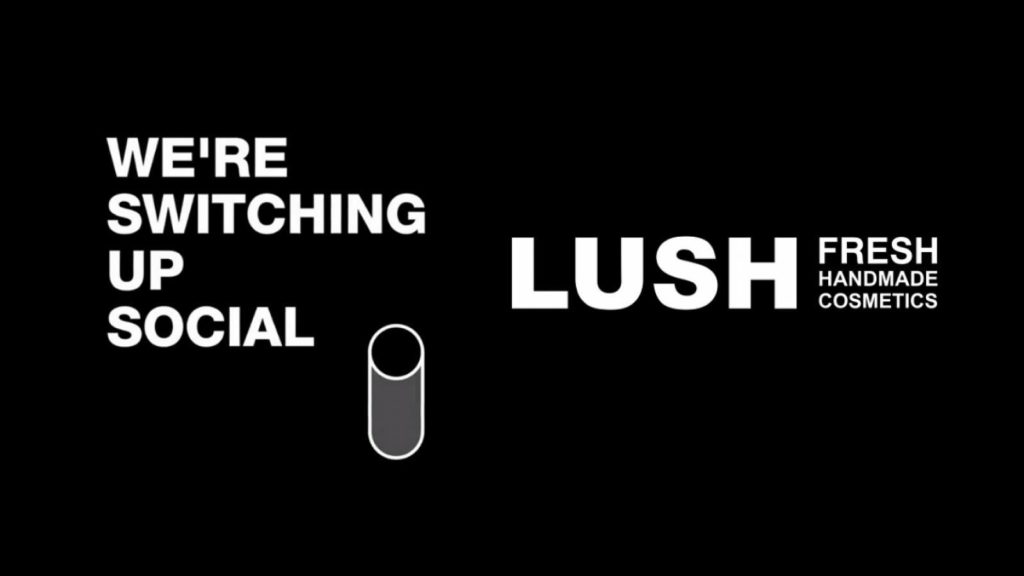
Ines Casas, head of social at creative and media agency eight&four, makes it clear that cosmetics retailer Lush’s decision to pack in their social media activity doesn’t hold water.
Last week, purveyor of bath bombs and all things rainbow-coloured Lush announced plans to abandon social media for good.
The company claims it’s ‘switching up social’ and opening up conversations “between the Lush community and us instead”, by directing people to the website’s live chat, customer care line and emails.
To call the industry response ‘mixed’ is generous. It’s been largely critical.
Dubbed ‘the new anti-social gangster on the high street’, one industry professional praised Lush for implementing more “meaningful strategies” and going back “to the purpose and the people”.
Another social expert took to Twitter to call it “a bonehead move”, nothing more than a “publicity stunt”.
A clean break?
On face value, it might seem like a nice, appropriate decision for a brand that’s built itself around purpose and sustainability-led initiatives.
And in a way, it makes sense that they pulled the plug before a competitor like The Body Shop.
But when you dig into it, the move is nothing more than a defeatist cop-out that makes very little sense.
In fact, Lush’s motives for following in Wetherspoons’ footsteps seem pretty confused.
The sprawling nature of the brand’s announcements on Twitter feel like the stream of consciousness of a community manager, rather than a fully planned move.
“This isn’t the end, it’s just the start of something new… See you there” they say, hinting at a lack of certainty.
It’s more like a boyband taking an ‘indefinite hiatus’ until their money dries up in 10 years’ time.
These sorts of announcements need to be handled in a considered and tactful manner, so as not to appear marketing-driven.
Proclamations along the lines of “We’re leaving Facebook, stick it to the man” often feel more like they’re targeted at generating industry coverage than about anything deeper and more meaningful.

After all, why would you ditch a channel that consumers are most likely to use when they contact a brand?
One customer expressed her frustration and disappointment on Twitter, saying she checks Twitter “way more than promo emails”.
Removing your brand from these key conversations, when you clearly have a captive audience there, seems misguided at best, and delusional at worst.
Sure, social media is far from perfect, but you’d be a fool to argue it hasn’t changed the way people connect and interact.
For every breakfast news guest sharing horror stories about social media’s impact on their lives, there are millions of people who’ve formed friendships, relationships, found jobs and fuelled personal interests through the medium.
So, social isn’t going anywhere, no matter how many brands hit out at it.
Algorithms might be difficult, but they’re not the enemy
That ‘We are tired of fighting algorithms’ yarn Lush has spun seems very odd.
Would a brand ever publicly moan about the marketing practices behind its advertising?
That they’re bored of media planning, or paying a TV channel to run their advert?
I wouldn’t think so.
Algorithms aren’t the enemy here. Far from it – they’re designed to recognise high-quality content and reward it with higher engagement levels.
If you have a robust social strategy in place, algorithms should not be a cause for concern.
As a social media strategist, your job is to work with algorithms, not against them.
You navigate the moral tightrope, facilitating conversation between brands and customers.
Millennials and Generation Z are more likely to scroll through their news feeds than open an email inbox to see what a brand’s sent them.
By opting for a newsletter-only marketing strategy, Lush has put up an additional barrier for these audiences.
Don’t make rash decisions, or you’ll get stung
Lush is one of the UK’s best-loved brands.
We’ve all been lured in by its fruity aromas and the unearthly animation of its staff at some point or another, but its reputation has already taken a knock.
One report states Lush has already incurred a 365% increase in negative sentiment on social media… by wanting to step away from social media.
For any brands considering their own social exodus, let this be a warning: you have to fully weigh up the risks before you do so.
In most cases, instead of risking alienation and damaging profit margins, make the channel work for you, encourage positive engagement and set the right example.
Because that’s how brands will truly win out and keep customers happy.







